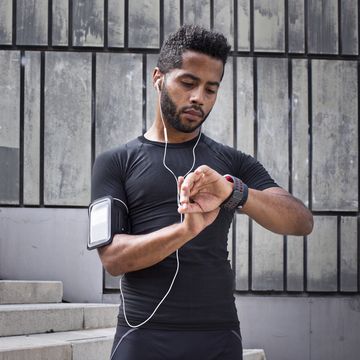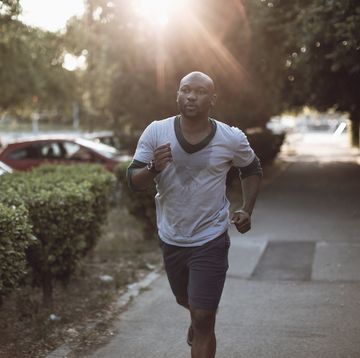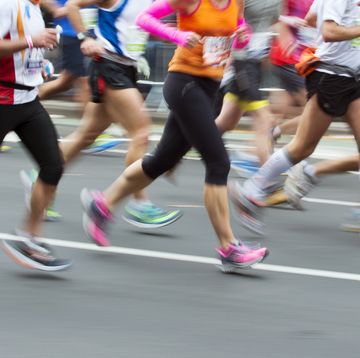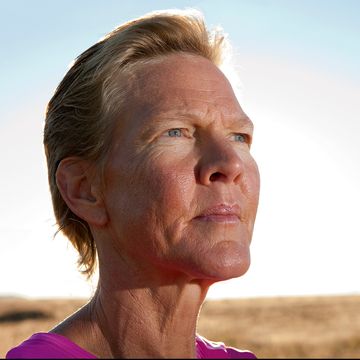An injury can sideline you for more time than you’d like. (Just ask Gwen Jorgensen or any other experienced runner, really). It can be hard watching friends and other runners continue to train and nab PRs from the couch or physical therapist’s office, and you may feel out of sorts not being able to run for the time being.
But you can still stay healthy and feel good when you’re not logging your miles regularly. From keeping yourself busy in other ways to showing yourself a little love, we’ve got four tips to help you feel your best during your time off.
1. Practice Self-Care
Your mental health is something you should focus on regularly—but it’s especially important when your normal routine has been altered. Get a pedicure or massage, buy a new outfit or piece of gear, meet up with friends, start a new book, or take time out of your day to meditate. Doing other things that you love can fill up your schedule again and help take your mind off of the fact that you can’t run. Research shows that those who made time for self-care reported feeling less stressed and had an overall higher quality of life.
2. Try Other Forms of Exercise
Running Shoes - Gear soreness. If you are able, consider cross-training activities that don’t stress your aching joints but still help you maintain the fitness you worked so hard to develop, such as swimming or cycling. Even walking around the block will get you moving. Also, take advantage of opportunities to be active throughout the day: Take the stairs instead of the elevator. Park in the farthest spot in the lot. Walk your errands in your neighborhood instead of driving them.
3. Adjust Your Diet to Fit Your Activity Levels
If you’re not working out like you usually do, you’re burning fewer calories. That means you might not need to eat exactly the same way you do during your high-mileage training. Being mindful of portion sizes and amounts of certain ingredients—such as sugar or sodium—can help.
Join Runner's World+ for unlimited access to the best training tips for runners
Advertisement - Continue Reading Below. Research has found that when people eat slowly, they actually take in fewer calories. Try chewing each mouthful at least 10 times. By the time your mouth is finished chewing, your stomach will have registered a full feeling and your brain will have gotten the hint that it’s time to stop chowing down.
4. Know Your Resting Metabolic Rate
Knowing how many calories you need each day can help you avoid overeating and therefore feeling downright exhausted and not your best. There are lots of resources available to help you determine how many calories you need each day. You can use an app, like MyFitnessPal, Life of a BQ Squeaker Updated: Feb 14, 2020 1:33 PM EST—or the total number of calories burned when your body is completely at rest, according to the National Academy of Sports Medicine (NASM). To find this number, use the following equation—the Mifflin-St Jeor equation—which is believed to give the most accurate result.
- Men: (10 × weight in kg) + (6.25 × height in cm) - (5 × age in years) + 5
- Women: (10 × weight in kg) + (6.25 × height in cm) - (5 × age in years) - 161
For instance, a 35-year-old female who is 5’4” (162.56 cm) and weighs 130 pounds (58.9 kg) would have an RMR of approximately 1,269 calories.
Once you know this number, you can begin to make more informed food choices throughout your day.













